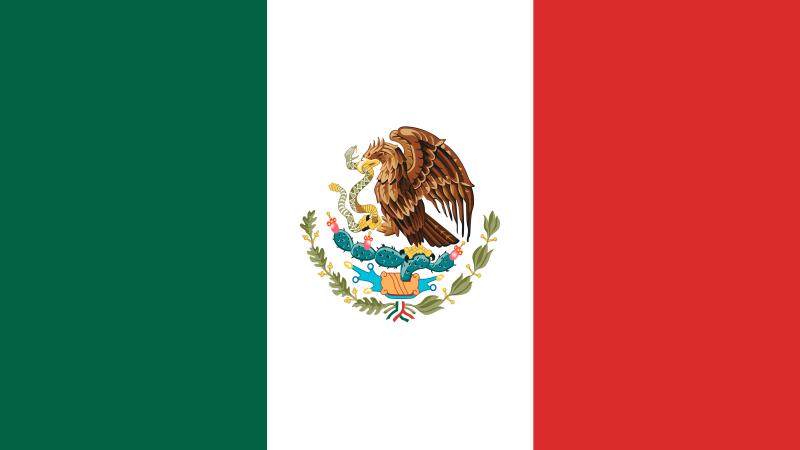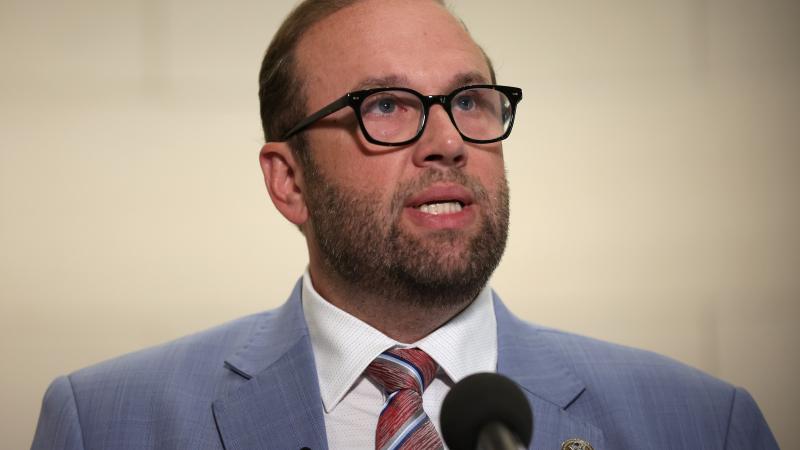European Union directive will require American companies to adhere to ESG policy goals: report
ESG, the "woke" investing philosophy, has been severely rolled back in the U.S., but the E.U. is still clinging to it, and may enforce it against U.S. companies. “It’s one of the most dangerous things that I’ve seen, and I’ve seen some dangerous things in the past few years,” Jack McPherrin, research fellow with the Heartland Institute, told Just the News.
The environment, social and governance (ESG) movement lost a lot of momentum in the past several months. The European Union, however, adopted a directive last year that will require companies doing business in Europe to adopt ESG policies. And it will fine them billions if they fail to comply.
“It’s one of the most dangerous things that I’ve seen, and I’ve seen some dangerous things in the past few years,” Jack McPherrin, research fellow with the Heartland Institute, told Just the News.
E.U. codifies ESG, may apply it to American companies
In January, mega-firms, including Blackrock, with $11.6 trillion in assets under management, fled the Net Zero Asset Managers initiative, and the group suspended operations. On top of walking back their net-zero commitments, corporations are also retreating from diversity, equity and inclusion (DEI) initiatives.
While American companies moved away from ESG and sustainable investing in the past year, the European Union has sought to codify ESG into law. In May 2024, the EU adopted the Corporate Sustainability Due Diligence Directive (CSDDD). According to a new report from the Heartland Institute, the directive requires all 27 member states of the European Union to implement the CSDDD into their national laws by 2026.
The individual countries are then required to enforce those rules. While the individual member states can have stricter rules, they have to meet as a minimum the requirements of the directive. Individual member states will have to impose penalties for noncompliance of not less than 5% of the company’s global turnover.
Turnover refers to the total amount of revenue a company generates from its operations during the year, which includes sales of all goods and services, as well as any other income generated by the company. So, a company that does business in the EU and that generates $100 billion worldwide turnover in a year could be assessed a $5 billion fine for each violation, regardless of where that company is located.
The CSDDD also requires individual member nations to set up a civil liability regime for companies that fail to comply with the directive’s mandates. McPherrin explained that this allows anyone, including individuals and NGOs, to sue companies that have violated the CSDDD.
“This enforcement aspect is what truly makes this law so dangerous,” McPherrin said.
Chain of activities versus sovereignty
As sources for its policy objectives, the CSDDD refers to at least 95 other international agreements, regulations, directives and other documents, including the Green Deal, the European Pillar of Social Rights, and the Paris Climate Agreement, from which President Donald Trump withdrew the U.S. upon taking office.
When the law comes into force, it will apply to any company that generates more than $492 million USD turnover in a year, and that amount includes all companies’ subsidiaries. Amazon, Apple, Cargill, Google, Ford, McDonald’s, Meta, Microsoft and Sysco Foods are examples of companies that will be directly affected by the CSDDD.
However, large conglomerates are not the only businesses that will be impacted. The mandates of the directives apply to the company’s “chain of activities,” regardless of how small they are or how much turnover they generate in the EU. The CSDDD “can apply to literally every company in the world, once you take in that indirect scope aspect,” McPherrin said.
The Heartland report provides an example of how this directive could play out. An environmental NGO based in Berlin could submit a “substantiated concern” about greenhouse gas emissions coming from a farm in Idaho that supplies potatoes to McDonald’s. This matter would be adjudicated in European courts, and if the ruling comes down against McDonald’s, the company could be on the hook for billions of dollars.
To avoid such risks, McDonald’s would have to require all the farms — even small family farms — that supply the company food products to calculate their emissions and have plans for how to reduce their use of fossil fuels in line with the net-zero emissions by 2050 goals of the Paris Agreement, even though the U.S. is no longer signed onto it.
“It’s not only an assault on free markets, which is incredibly important, it’s also an assault on the entire notion of sovereignty,” McPherrin said.
Real-world example
The Heartland report includes a real-world example of this already happening as a result of the German Act on Corporate Due Diligence Obligations in Supply Chains. The law, according to the report, functions in the same way as the CSDDD by forcing German companies and companies within their supply chains to adhere to ESG obligations under the threat of civil penalties.
In April 2024, the United Auto Workers (UAW) sued Mercedes-Benz, accusing the company of anti-union activity against autoworkers at a battery plant in Alabama. The U.S. Chamber of Commerce explains that while it’s common practice for unions to file unfair labor practice complaints against companies they are seeking to unionize, in this case, the UAW filed its complaint with a foreign government under a German law that carries substantial penalties.
Mercedes-Benz is a German company operating under German laws, but under the CSDDD, the Heartland report explains, the same tactic could be applied to a U.S. automaker, such as Ford.
Influence over the U.S. economy
The issue of the CSDDD came up during Commerce Secretary Howard Lutnick’s confirmation process. In the “Republicans Questions for the Record,” Sen. Roger Wicker, R-Miss., explained that the CSDDD would “impose significant costs on thousands of U.S. companies doing business in Europe.”
Wicker asked Lutnick how he would respond to the threat the directive poses. “I will consider using all available trade tools at the department’s disposal, as appropriate, to respond to any actions by foreign governments, including the EU, that harm the American economy and impose unreasonable burdens on our companies,” Lutnick replied.
The Heartland Institute joined a coalition of more than two dozen free-market advocacy groups, along with the Western Energy Alliance, in a letter to Lutnick, Treasury Secretary Scott Bessent and other trade officials, warning that if the CSDDD proceeds unchecked, it would have significant influence over the U.S. economy.
“This radical law threatens to undermine American economic interests, impose foreign ideological mandates on U.S. businesses, and erode national sovereignty,” the letter states. The letter also says that the CSDDD goes beyond traditional ESG goals. It includes, for example, a provision requiring companies to restrict information deemed to be “disinformation,” effectively requiring companies to engage in censorship.
Any attempts to impose the directive mandates will surely face considerable legal action from companies facing related fines, but the coalition is hoping that other avenues will be pursued before it gets to that point. The length of time litigation takes in Europe varies wildly from nation to nation. On top of that, the final court of appeals, the European Court of Justice, says that in 2024, the average appeal took 18.4 months.
McPherrin said that, with less than two years before enforcement begins, there isn’t a whole lot of time and something needs to be done at the international level.
“There needs to be significant diplomatic pressure placed upon the European Union to carve out U.S. companies from this law and remove the civil liability aspects and remove the penalties. That's the most important thing we can do,” he said.
The Facts Inside Our Reporter's Notebook
Links
- ESG policies
- Jack McPherrin
- including Blackrock
- $11.6 trillion in assets under management
- fled the Net Zero Asset Managers initiative
- retreating from diversity, equity and inclusion
- adopted the Corporate Sustainability Due Diligence Directive
- new report from the Heartland Institute
- Turnover refers
- Paris Climate Agreement
- President Donald Trump withdrew the U.S. from
- European Green Deal
- European Pillar of Social Rights
- German Act on Corporate Due Diligence Obligations in Supply Chains
- United Auto Workers (UAW) sued Mercedes-Benz
- U.S. Chamber of Commerce explains
- substantial penalties
- Commerce Secretary Howard Lutnickâs confirmation
- Republicans Questions for the Record
- Western Energy Alliance
- letter to Lutnick














